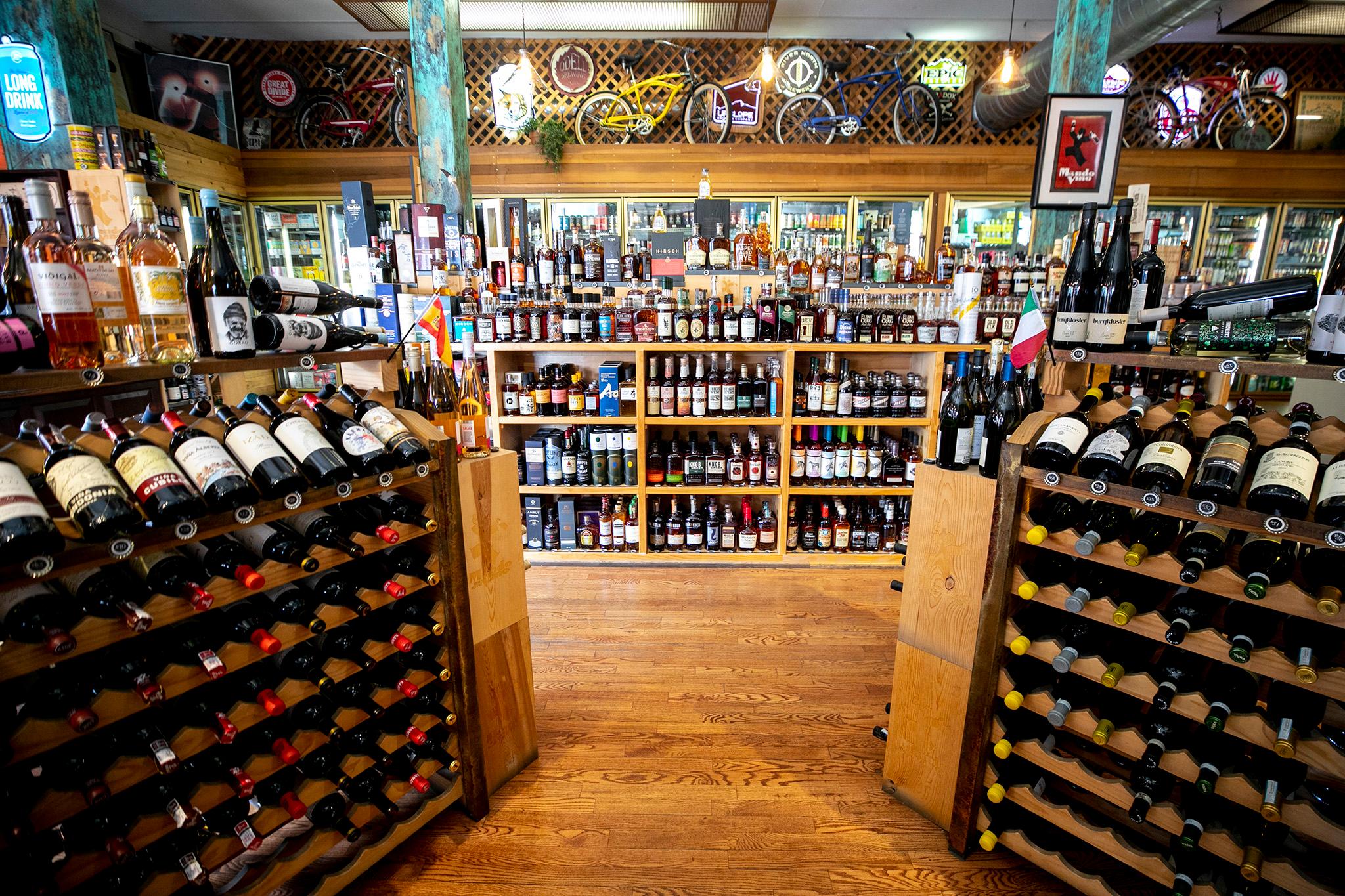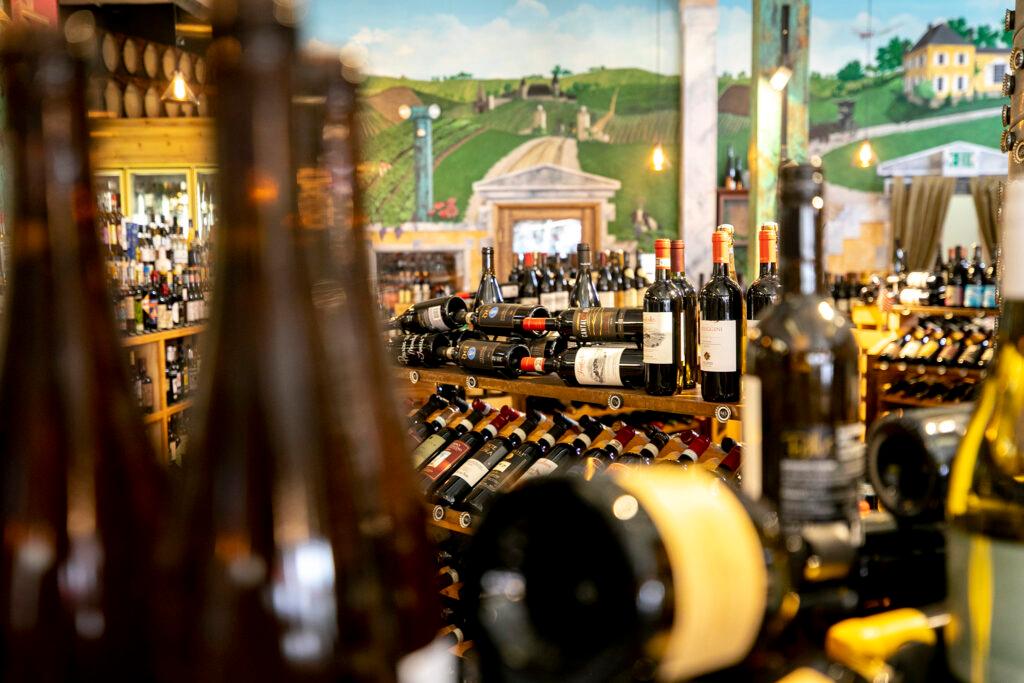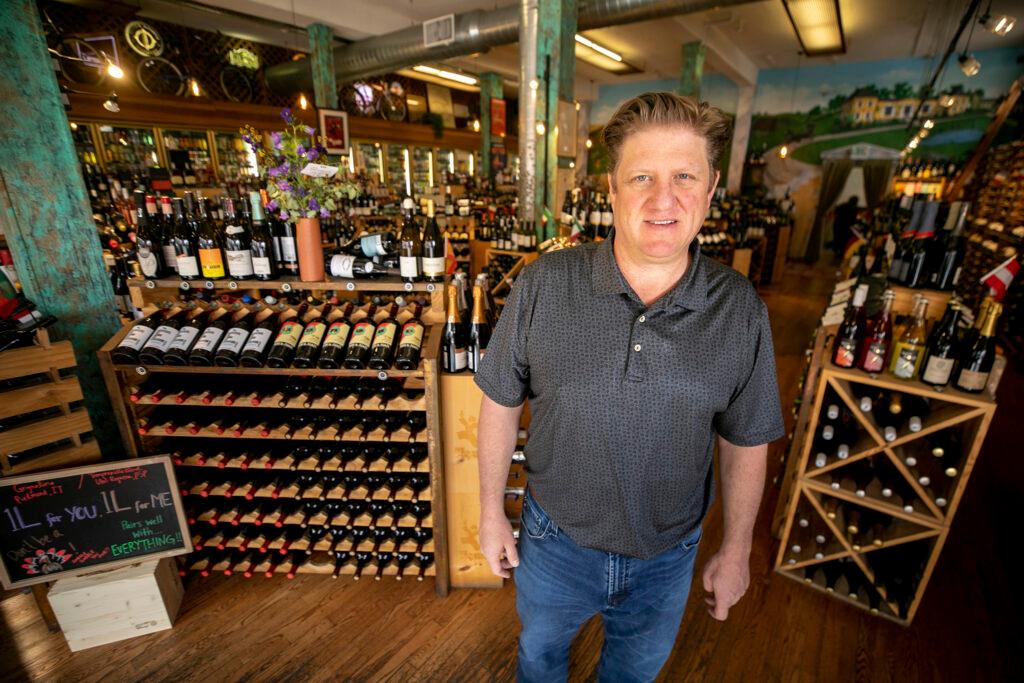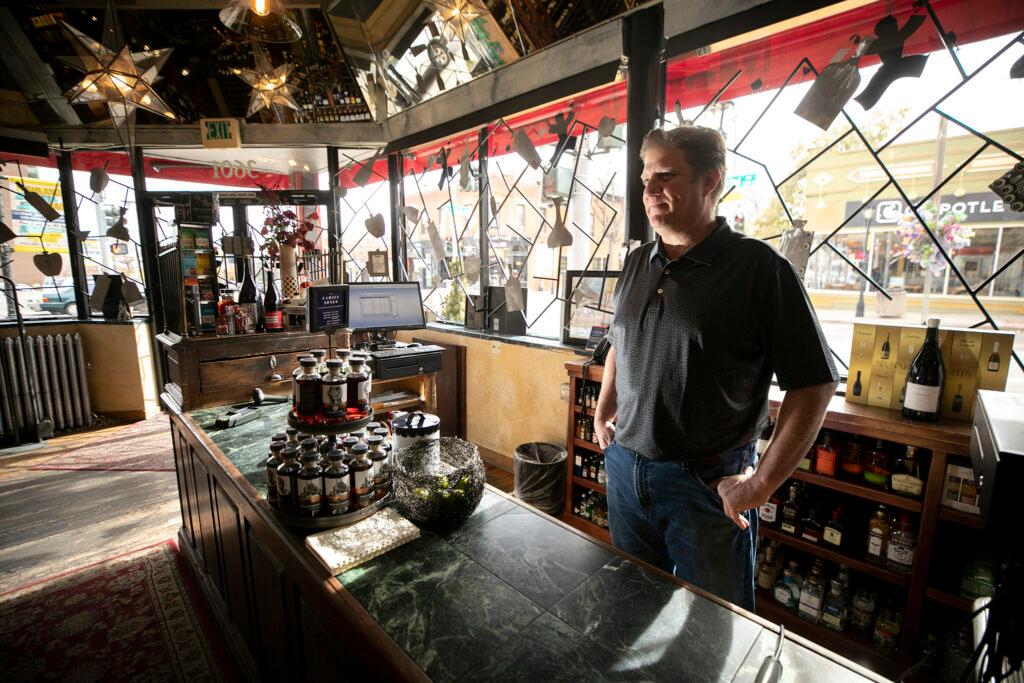
On a recent Friday evening at Mondo Vino, a liquor store on West 32nd Ave. in Denver’s West Highlands neighborhood, there was a wine tasting going on in the back of the store. It’s the reason Julia Ward is there. She lives nearby.
“It is my local watering hole, I would say in a way,” Ward said while sipping on a glass of Italian red. “I try to come either Friday or Saturday, try some new wine, try not to walk out with too many bottles.”

There was a steady flow of customers by 6 p.m. Many have their dogs in tow, because, like at any good local spot in Colorado, dogs are welcome.
“Everyone here is just so lovely. It's definitely a little neighborhood vibe,” Ward said.
It seemed reasonably busy, but according to owner Dewey Kratzer, it’s not as busy as it used to be.
“Foot traffic's down… the daytime and the weekdays are a lot slower,” Kratzer said.
The culprit is supermarkets, Krazter said.
Colorado voters narrowly passed Proposition 125 in November 2022, which expanded grocery store liquor licenses to include wine. They already were allowed to sell full-strength beer starting in 2019. Grocery chains and big box stores like Walmart across the state started stocking wine on March 1, 2023.
At the time, some retailers said they recorded losses of up to 40 percent after beer landed on grocery shelves. But what about wine? A listener wrote in to CPR News to ask how the ballot measure is impacting independent liquor stores as part of Colorado Wonders.
Kratzer, who opened Mondo Vino in 1999, said that while he still has loyal regulars, he’s definitely seen a drop-off. He takes pride in carrying a unique selection of wines, including hard-to-find bottles that probably aren’t going to be on the shelves at King Soopers. But even so, some customers are going to opt for the convenience of one-stop-shopping, he said.
“It's just a lot easier. You're getting your milk and your eggs and all your provisions in one place,” Kratzer said.
The new landscape means the upcoming holiday season could prove a make-or-break period for some mom-and-pop liquor stores. The holidays are the busiest time of year for alcohol sales.
“You basically work the last two months of the year to get you through the first three months of next year. It's just typically that's what the industry is,” Kratzer said.

It’s not clear what will happen when shoppers find they can pick up the turkey and the wine at the same time this year. Kratzer thinks some stores will go out of business if the holidays disappoint.
“A lot of these small mom-and-pops have really had to pivot,” said Chris Fine, the executive director of the Colorado Licensed Beverage Association, a group that represents the state’s small liquor retailers. They campaigned against the legislation that allowed wine to be sold in grocery stores, saying expanded beer sales had left many liquor stores reeling. “We have begun to see a lot of stores struggling.”
Fine estimates that sales at some stores are down 30 percent to 40 percent since supermarkets started selling wine. The extent of the impact depends a lot on where a store is located, according to Fine.
For instance, Fine said, liquor stores in resort communities are getting hit harder than those on the Front Range. People visiting from other states, like North Carolina or Texas, are already accustomed to buying wine in grocery stores. At the same time, most tourists aren’t going to go out of their way to find a local liquor store if they don’t have to.
“There's kind of not that community loyalty,” Fine said.
Stores located near supermarkets are having a difficult time no matter what part of the state they’re in, according to Fine. Historically, in Colorado, a shopping center with a supermarket was considered a prime location for a liquor store. That means there’s quite a few operators in that situation, he said.
State data suggest that when the legislature struck a Prohibition-era law and expanded full-strength beer sales, it didn’t really change how many liquor stores were operating in Colorado. But losing wine sales, too, could push some stores over the edge.
Liquor stores that focus on customer service and offering an experience you can’t get at the grocery store will still thrive, said Fine.
“It's knowledge. I mean, I challenge anyone to go into a King Soopers and ask someone for a recommendation,” he said.

Back at Mondo Vino wine tasting, Ward said it’s that personal touch that brings her back.
“I always love walking in and saying what I'm cooking or what my friend likes and going from there. I always support local when I can,” she said.
Ward voted against the ballot measure that allowed supermarkets to carry wine. She has no plans to change her shopping habits.
“I definitely don't get my wine at King Soopers, or even Trader Joe's,” Ward said.









